Kudjewk
JANUARY - MARCH
The monsoon season brings flooding rains (kudjarr) and strong winds (kunmayorrk). Kakadu's landscape is lush, wildlife is active, and popular sites are quiet—expect dry mornings and rainy afternoons.
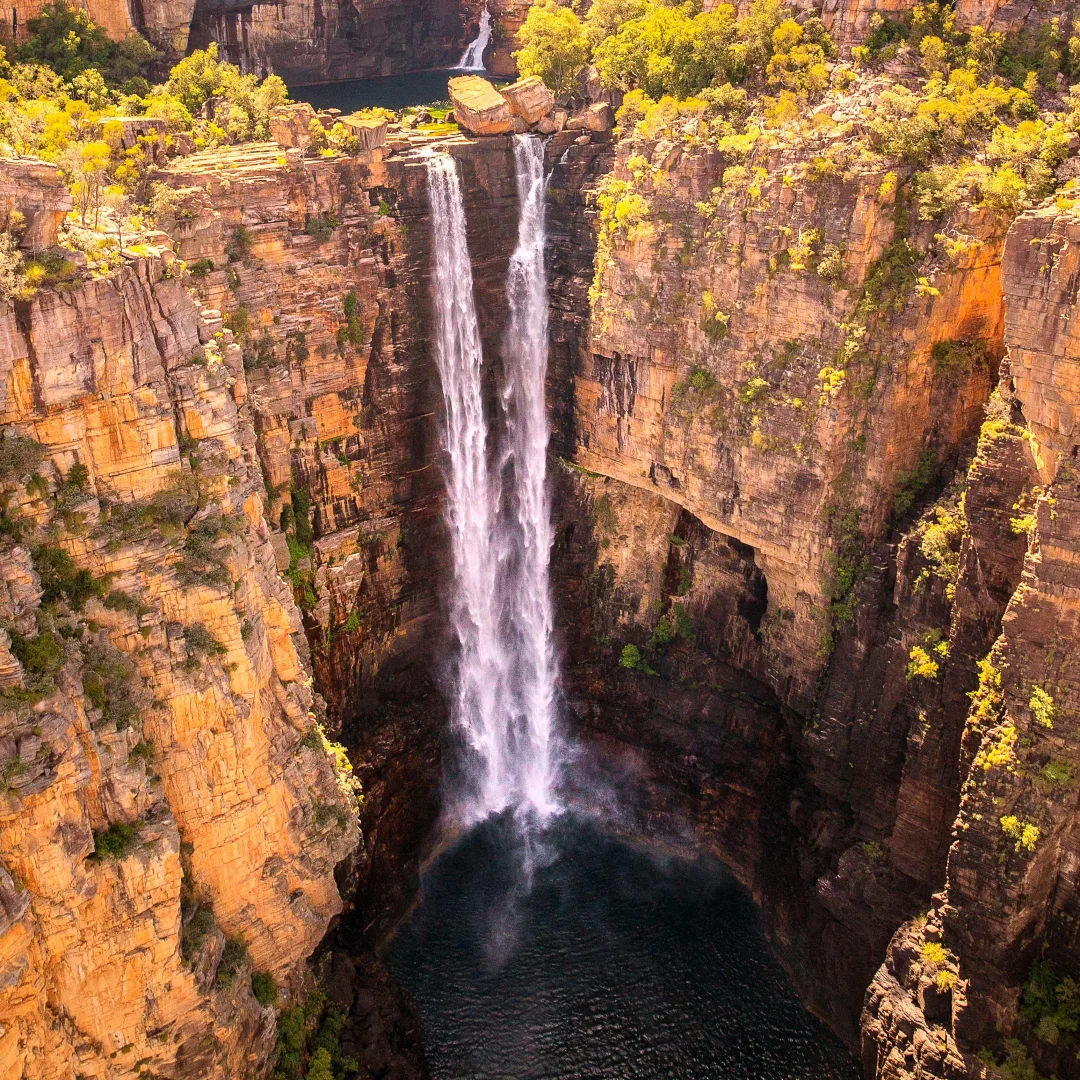
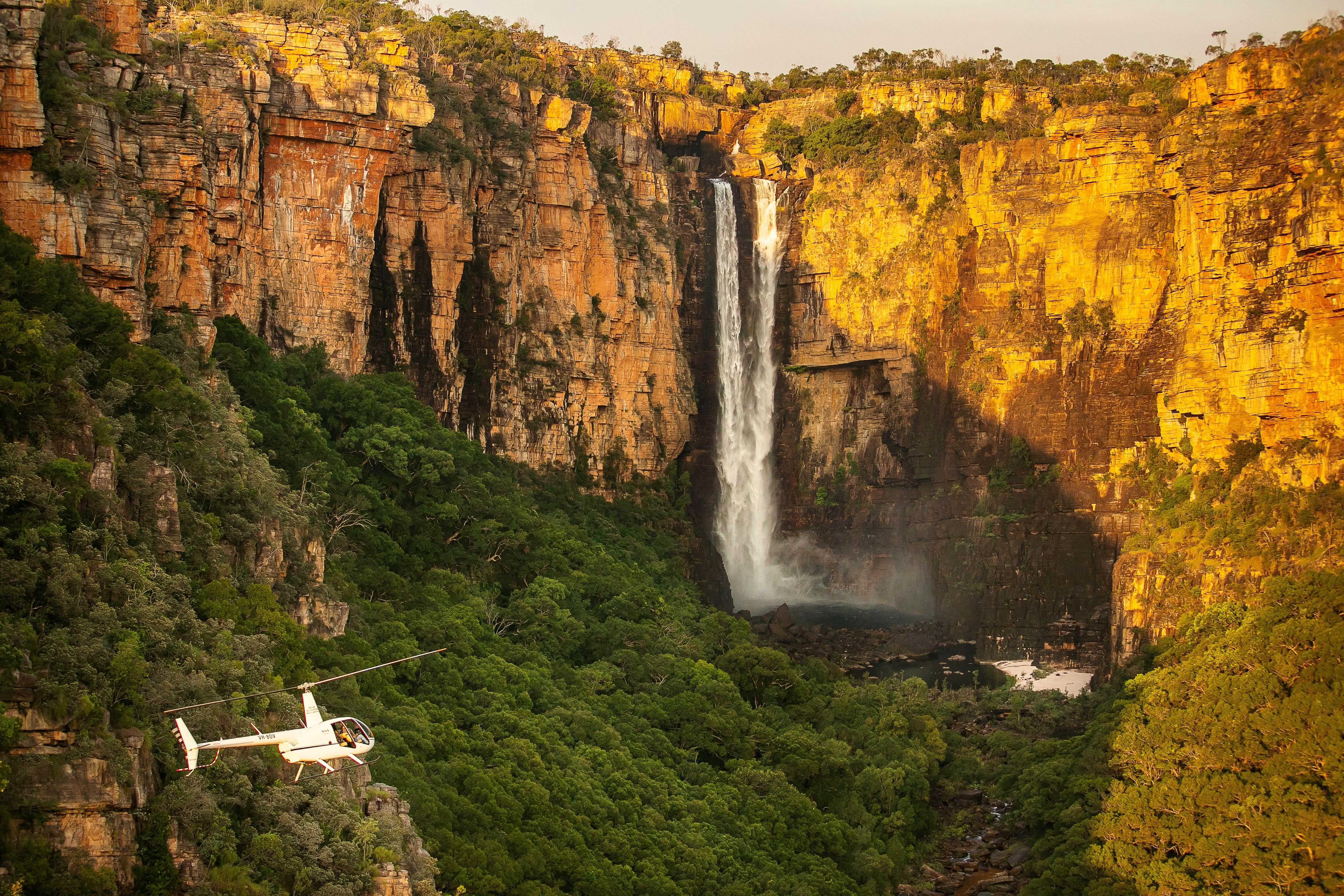
The monsoon season brings dramatic thunderstorms, heavy rains (kudjarr), and swirling winds (kunmayorrk), transforming Kakadu into a lush, vibrant landscape. Flooded wetlands breathe new life into the region—birds, frogs, and insects become more active, and the land pulses with energy.
For travellers, it’s a time of solitude and serenity. While road access to some remote sites is limited, scenic flights and wet season cruises offer incredible views of waterfalls in full flow. Expect dry mornings followed by afternoon downpours—perfect for early starts and relaxed afternoons.
Things to do: Yellow Water Cruises, scenic flights, cultural centre visits, photography, storm watching.
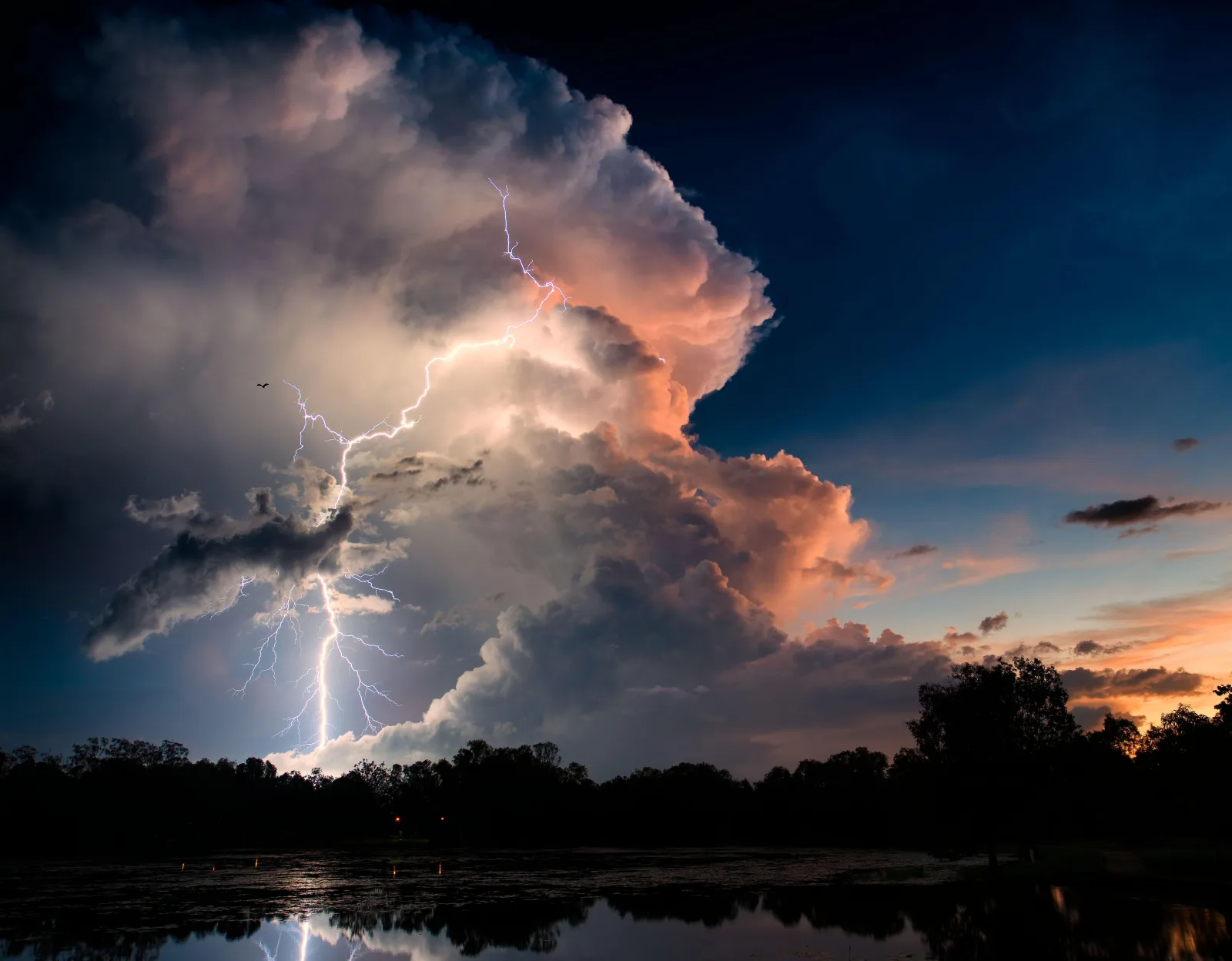
Known as the "knock ‘em down" season, Bangkerreng marks a short but striking transition. Powerful winds from the east (koyek) flatten the tall spear grass, making way for new growth. It's a time of renewal and anticipation for local communities. For visitors, Bangkerreng brings clearer skies and the beginning of easier access to some sites as water levels begin to recede. This is a peaceful time to witness the change of seasons and spot wildlife returning to open areas.
Things to Do: Bushwalks, cultural experiences, wildlife spotting, photography.
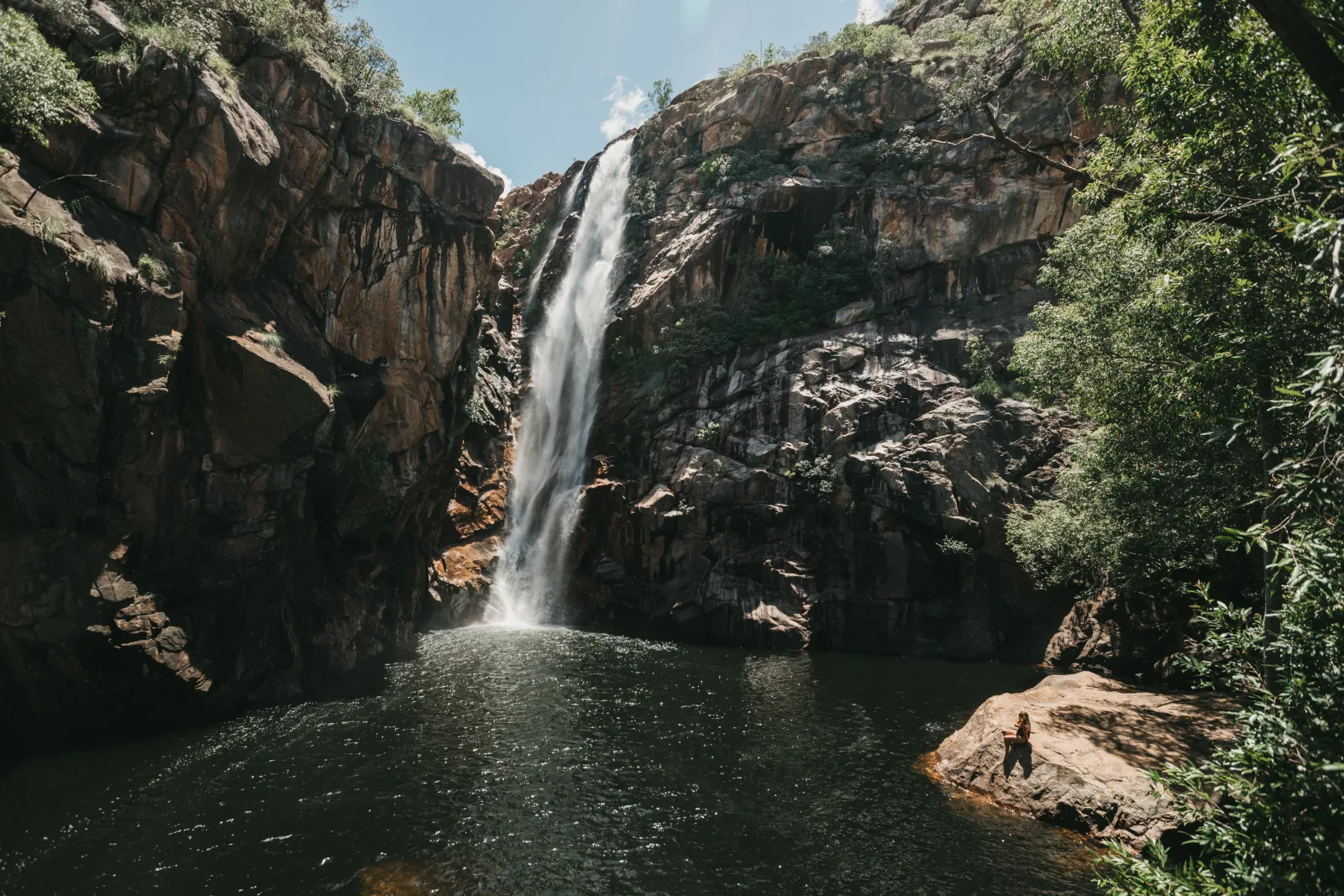
Cooler temperatures arrive, along with consistent dry weather—welcoming the start of Kakadu’s peak visitor season. The landscape is green and thriving after the rains, with comfortable travel conditions and low humidity. This is also a time of cultural gathering, marked by events like the Taste of Kakadu festival, where locals celebrate bush food, music, and storytelling. For travellers, it’s a prime season to explore waterfalls, take guided tours, and experience the land through Indigenous perspectives.
Things to Do: Taste of Kakadu festival, guided walks, waterfall visits, bush tucker tastings.
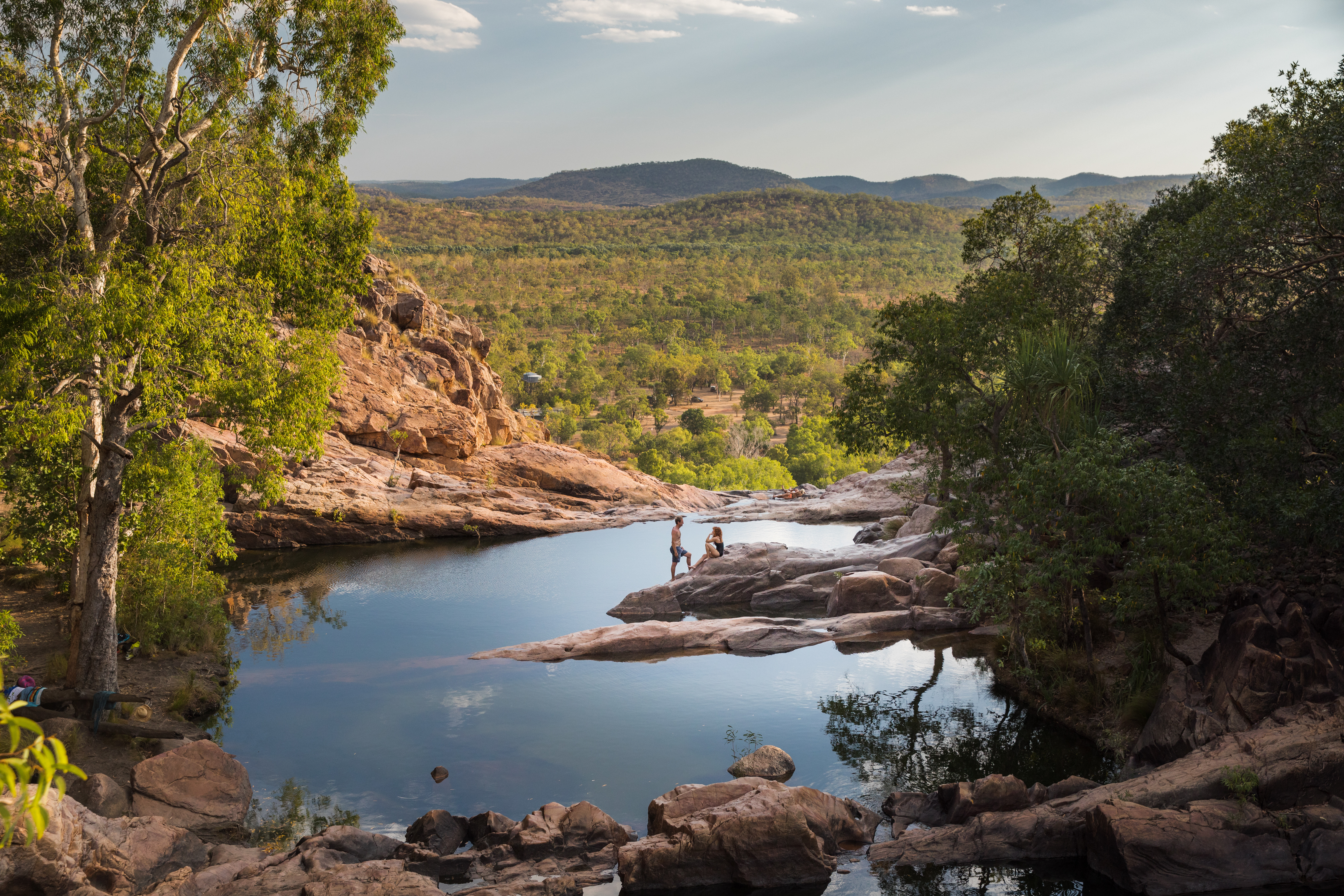
Kakadu’s cool season is in full swing, bringing crisp mornings, mild days, and easy access to remote areas. With receding floodwaters, popular attractions like Jim Jim and Twin Falls become accessible by 4WD. This is the most popular time of year to visit Kakadu, when everything is open and the weather is at its most comfortable. For Bininj/Mungguy (local people), this is a time of abundant hunting and harvesting. Visitors should book ahead, as accommodation and tours can fill quickly.
Things to Do: 4WD adventure tours, waterfall hikes, camping, stargazing, cultural tours.
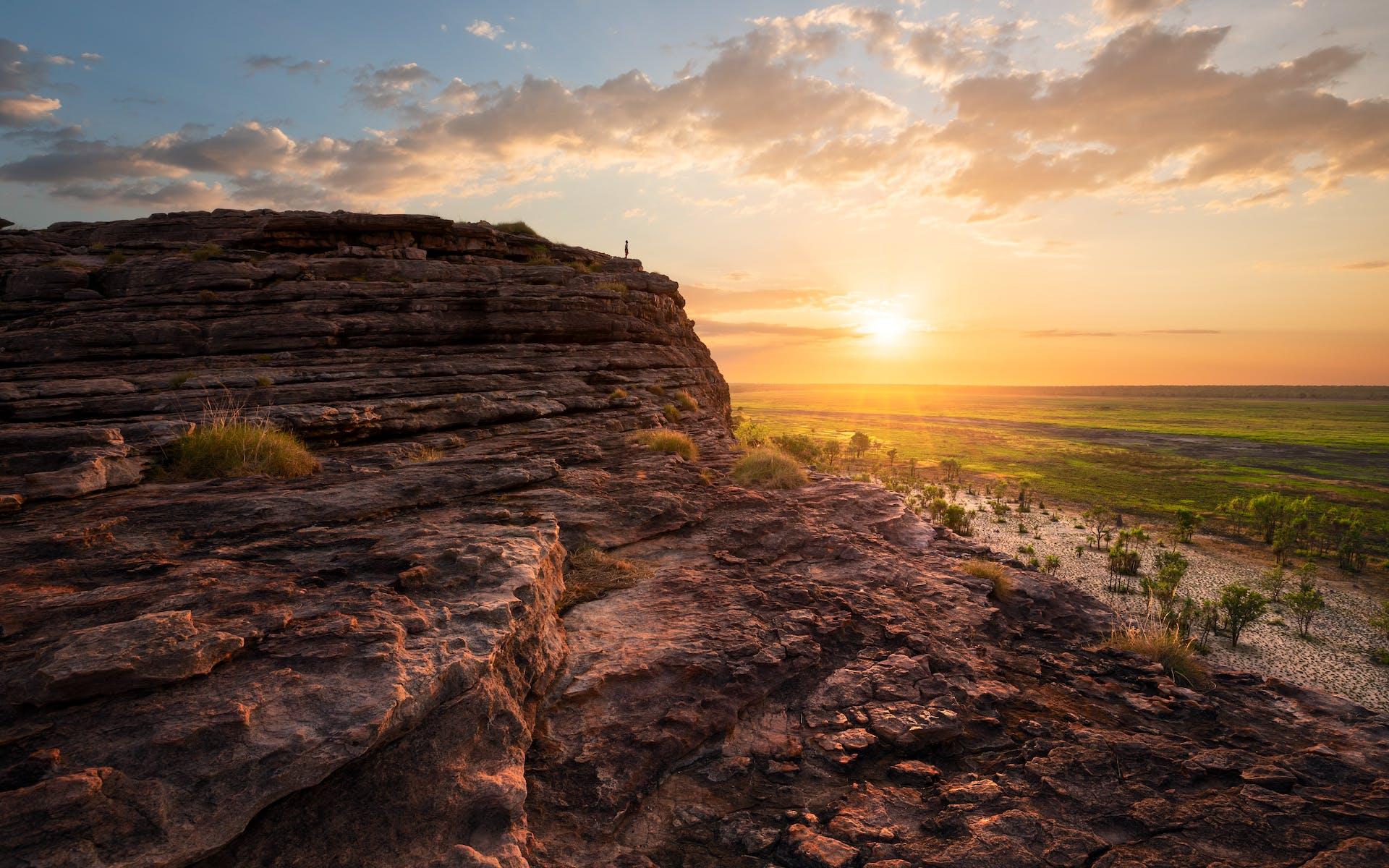
The hot, dry weather sets in, and Kakadu’s wildlife congregates around shrinking waterholes. It's peak birdwatching season, as flocks of magpie geese, brolgas, and other species migrate across the wetlands. The build-up of heat brings dramatic sunsets, flowering paperbarks, and increased crocodile sightings at places like Yellow Water. For locals, it’s a time of preparing for the coming rains and harvesting bush foods. Travellers should prepare for high temperatures and take advantage of early morning activities.
Things to Do: Sunrise cruises, Kakadu bird week, birdwatching, wildlife photography, cultural talks, evening dining.
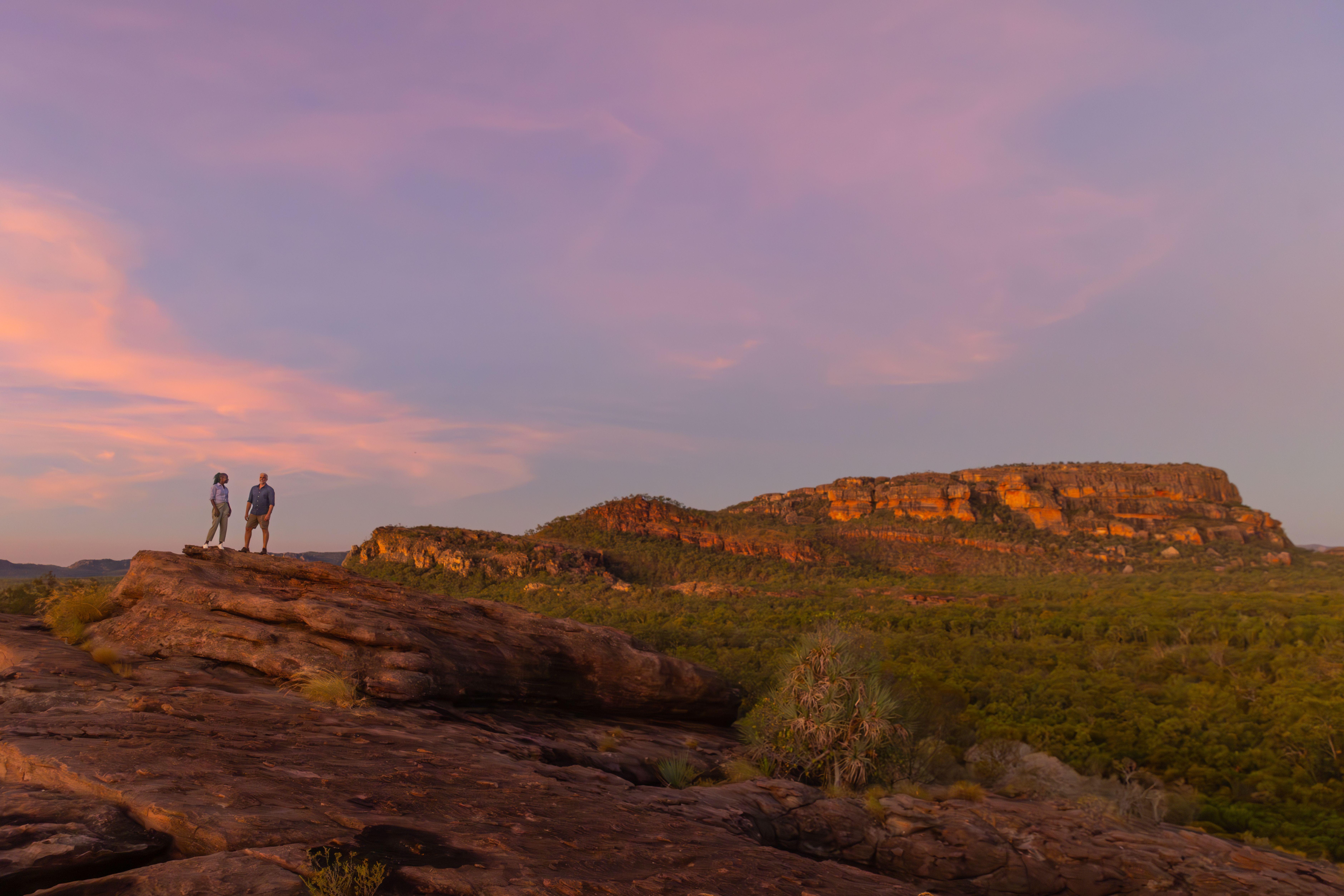
The build-up season, Kunumeleng, is characterised by rising humidity, thickening clouds (kunngol), and restless winds (kunmayorrk). It’s a time of deep reflection in the Indigenous seasonal calendar—a time to think of loved ones and look ahead. The first rains begin to fall, cooling the land and reawakening dormant plants and animals. For visitors, it’s a quieter season with fewer crowds and an intimate look at nature’s transformation.
Things to Do: Early wet season cruises, scenic flights, photography, storytelling with Traditional Owners, cultural centres.